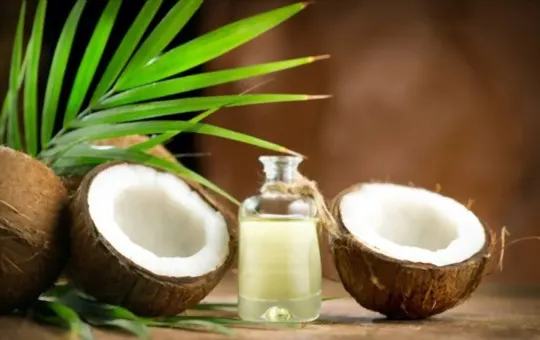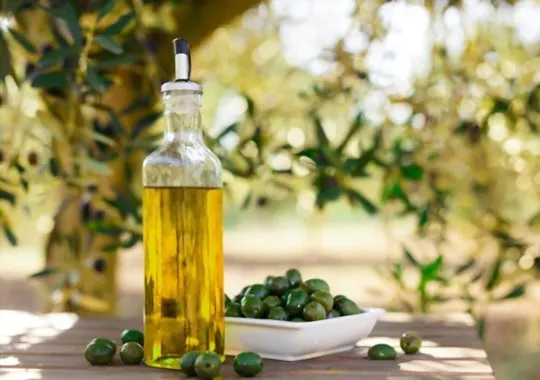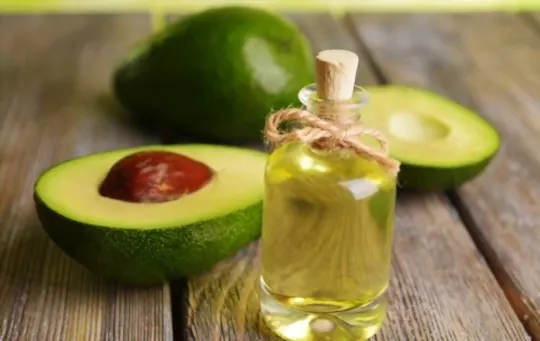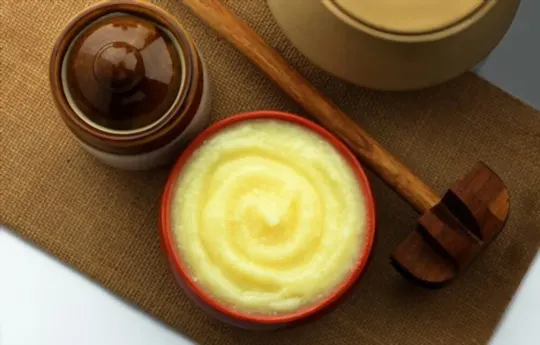Have you been wondering what canola oil is and if there is a healthier alternative? You’re in the right place.
In this article, we’ll dive into what makes canola oil unhealthy, and explore the best alternatives to it.
A healthier cooking option awaits.
What is Canola Oil?

Canola oil is a versatile cooking oil derived from the canola plant.
It is made up of mostly monounsaturated and polyunsaturated fats, along with some saturated fat, making it a healthier choice for people who are watching their intake of animal fats.
Canola oil has light flavor and a delicate texture that many love for its ability to complement the flavors that it’s used to cook with.
It works great for baking, stir-fries, popping popcorn, sautéing vegetables and roasting potatoes.
When using canola oil you have to be mindful of its high burning point; when heated beyond this temperature Canola can produce off-flavours.
To avoid this unpleasant taste the way to go is to use a lower heat setting in the kitchen, this will add more flavourful dishes rather than only relying on higher temperatures while cooking.
Additionally, always store your canola oil away from sunlight and other high levels heat or humidity as they can cause oxidation which adversely effect its flavor.
Overall, Canola oil is great option if used right.
5 Best Canola Oil Substitutes to Consider
Whether you have health concerns or just want more variety in your diet, here are five of the best alternatives to consider if you’re looking for substitutes for canola oil.
1 – Peanut Oil

Peanut oil is a popular substitute for canola oil because of its nutty flavor, which can add depth to dishes.
Like canola oil, it also has a neutral flavor and high smoke point—good for stir-frying and deep-frying.
However, peanut oil is much higher in calories than canola oil and has nearly double the saturated fat content than canola oil’s mere trace amount.
Peanut allergies are also something that should be taken into consideration when using peanut oil as a substitute for canola.
Peanut oil is best for cooking dishes that require a little extra flavor such as fried chicken or fish, roasting vegetables and stir fries.
2 – Coconut Oil

Coconut oil is a great substitute for canola oil, as it has a high cooking temperature and a mild flavor, making it excellent for baking.
While it does have a strong flavor, its tropical origins make it an ideal choice for certain dishes that focus on those flavors, making it a versatile addition to your collection of cooking oils.
It’s high in saturated fats, so you should keep this in mind when deciding how much to use.
3 – Olive Oil

Olive oil is probably one of the best substitutes for canola oil when it comes to flavor and health benefits.
Olive oil is a good source of healthy monounsaturated fats and has a pleasant, mild flavor.
It’s best used uncooked or only lightly heated as it has a low smoke point.
When using olive oil in place of canola oil, you may want to add some extra aromatics like garlic, red pepper flakes and herbs to give the dish some extra flavor that won’t be lost in the higher-temperature heat.
Olivae oil is also an excellent choice for salad dressings, dips and marinades as well as a finishing oil for cooked dishes like pastas, sautés and stir-fries.
4 – Avocado Oil

Avocado oil is extracted from the flesh of an avocado.
Many consider it an even healthier option than canola oil, especially when it comes to cooking applications that require high heat.
It has a high smoke point (between 375°F and 400°F) and is full of other healthy fatty acids, making it not only safe to use at higher temperatures, but also a great choice for those looking for workable and tasty alternate oils in their daily cooking.
Avocado oil has a light flavor unlike canola and will infuse with whatever additional flavors you add to your dishes.
5 – Ghee

Ghee is a type of clarified butter commonly used in Indian cuisine, and it has a high smoke point and a longer shelf-life than butter.
Ghee is made by slowly heating butter to separate the milk solids from the fat.
The milk solids are then filtered out, leaving the fat behind.
Ghee has a unique nutty flavor to it that can be great in savory dishes but may not be suitable for all dishes.
You will want to experiment with different amount of ghee if you decide to use it as a substitute for canola oil.
Be aware that while ghee is considered vegan, it does contain trace amounts of lactose and casein, so those with dairy allergies should avoid this option.
Conclusion
Regardless of your reasons for not using canola oil or wanting to find the best substitute, the list of alternatives should offer something that will work better for you while also providing different flavor profiles.
When stuck without canola oil, you can use a combination of these substitutes or opt for over-the-counter cooking oils to keep your cooking and baking going as usual.
In general, the healthier alternatives to canola oil include butter, extra virgin olive oil, peanut oil, coconut oil, and avocado oil.
They are all around good choices if you’re looking for a way to replace canola oil in either savory or sweet dishes.
Keep in mind that each has its own unique flavor and properties so experiment to figure out the best substitution for your recipes.

5 Best Canola Oil Substitutes to Consider
Ingredients
- 1 – Peanut Oil
- 2 – Coconut Oil
- 3 – Olive Oil
- 4 – Avocado Oil
- 5 – Ghee
Instructions
- Choose your preferred substitute from the list of options.
- Organize all of your ingredients.
- Use the proper substitute to cook your recipes.

Carrie is a food writer and editor with more than 15 years of experience. She has worked for some of the biggest names in the food industry, including Bon Appétit, Food & Wine, and Martha Stewart Living.
As the Editor in Chief of IntroChicago.com, Carrie oversees all of the content on the site. She also manages the team of contributing writers and editors, who help to create delicious recipes, helpful tips, and informative articles that you’ll find on the site.
A native of the Chicago area, Carrie is passionate about all things food. She loves trying new restaurants and experimenting with new recipes in her kitchen. She’s also a graduate of the Culinary Institute of America, so she knows a thing or two about food!
